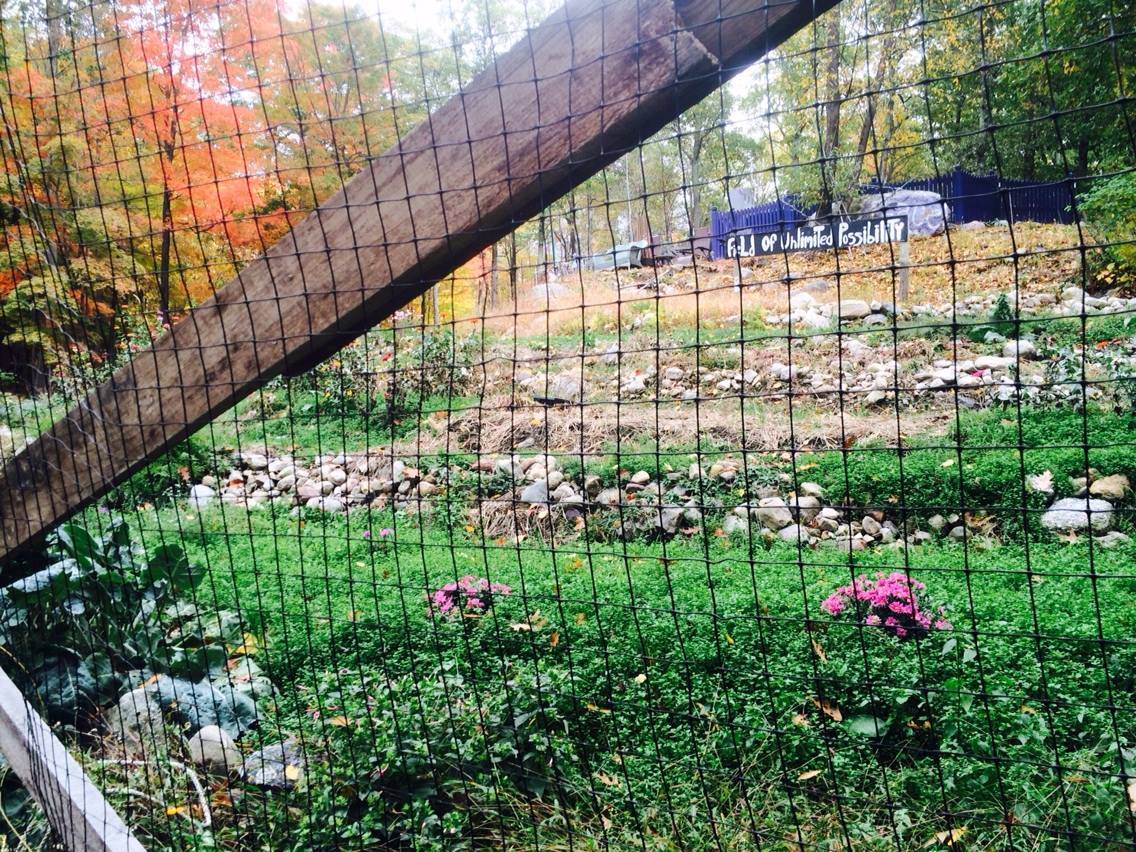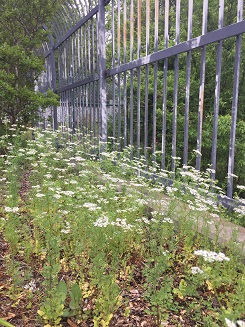Everyone should have a Potager, which is French for “kitchen garden” and “providing vegetables for the pot”! It can be simply a small variety of herbs, edible flowers, vegetables and/or fruits right outside your kitchen door.
Do you like walking through your garden just for the aroma therapy that the herbs and flowers provide? Right under our noses, (literally!) is a powerhouse of missed goodness that can revolutionize our culinary creations, but also our health and wellbeing.
Anybody who knows me, knows how passionate I am about taking responsibiity for my own wellness through real food. The kind of food you grow yourself or are forunate enough to access from a local farmer.
Many an ill could be lessened or stopped in it’s tracks if we were proactively applying the the foundational adage, ‘let food be your medicine and medicine be your food”, by keeping a simple potager of herbs, edible flowers and weeds.
Having a personal relationship with our food, as many a gardener can tell you, has so many benefits that go well beyond the physical nourishment it provides.
Herbs and flowers are wonderful for the whole garden environment and everyone who enters it! When you begin to sow seeds, your intention and action energizes the space.
This energy, though invisible, is as sure as gravity.
And, what is seen, is the results of the life energy which is charging the well “intended” garden!
The most overlooked yet incredibly essential ingredients to better health and wellness is the herbs and weeds growing outside your door!
Many of us like the idea of having an herb patch either in our yard or in a sunny window, yet it is one of the most under utilized items in the garden.
So let’s change that right now!
I was, like most people, missing out on the tasty and powerful properties of herbs, simply because I was limited in my understanding of how to used them.
So I want to share with you some simple facts & tips of ways that I am learning to get the most out of my herb garden.
Growing herbs for food and medicine is generally so easy! It requires minimal effort and is extremely cost effective! Store bought cut herbs sell for a premium. In my permaculture garden, where I have no water source other than the rain from the heavens, my herbs do exceptionally well with little to no attention. The secret has been that it is well mulched to retain moisture.
Herbs and spices are not just for flavor.
Herbs have carminative properties. What does carminative mean?
Herbs carminative properties make it easier for you to digest your food so that your system doesn’t have to work so hard. Carminative herbs actually reduce gas and bloating and other digestive discomforts.
You’ve probably heard that you are what you digest, not just what you eat.
One thing that you can do is activate your herb cabinet by moving some from the cabinet to the table for easy access and start adding them to your meals when you sit down to eat.
Here are some easy tips:
I love to use fresh herbs by the handful! I just chop different combinations of herbs like parsley, sage, garlic chives, cilantro, rosemary and thyme and sprinkle them on sauces and dishes at the end of cooking so that they are barely cooked and retain their fresh flavor.
I often saute chopped onion, garlic and sometimes fresh ginger or curry spices, like tumeric and chili peppers to add to cooked squash that I have blended up into a sauce that is then poured over potatoes, roasted veggies or rice.
Be brave and play around with these!
You can also dry your herbs for making your own herb blends.
Make your own Rosemany, Thyme Salt Blend. All you need is 1 Tbl powdered Rosemary, 1 Tbl of powdered Thyme and 1/2 Tbl of fine Sea Salt. Mix and fill a salt shaker. Now it is ready to add to any dish right at the table. Don’t worry so much about what it “goes with”. Begin to experiment and discover new flavors and influences.
Another blend to make is for sprinkling on hot cereal, yogurt, toast, smoothies etc. Add 2 Tbls of powdered cinnamon, 1 tsp. of powdered ginger, 1/2 tsp. of powdered clove and 1/2 tsp. of powdered cardamon.
I also love fennel. You can save the seeds and use them whole or make a powder. You can make a nice fennel rice by sauting over low heat, 1/2 Tbl. of fennel seed and 1-1/4 cup of jasmine or basmati rice in a pan until lightly roasted, stirring occasionally, then add a 2 cups water, bring to a boil, reduce heat to low and cook until water is gone about 15 mins.
Bitter herbs have special properties to activate bile and get your digestive system primed and ready to eat. Besides being useful for digestion, bitter herbs can be used to help with urinary tract infections, kidney stones, fluid retention, achy joints and gout.
An example of bitter herbs are dandelions and coriander. I dry danelion leaves and coriander seeds from the garden and then using a coffee bean grinder, make a powder. You can also use a mortal & pestle to grind into a powder and then fill a shaker bottle.
I sprinkle some on the first bite of my food to activate my digestive system. If you especially like the flavor, then you can sprinkle more on the dish and enjoy, but just the initial tasting of bitters will bring a lot of benefit.
And Don’t overlook Paprika! It has four carotenoids: beta-cryptoxanthin, beta-carotene, lutein and zeaxanthin. All four function as antioxidants, but the first two are converted into the form of vitamin A that is used in the eyes to turn light into vision and is needed to produce the protein that makes skin. Be generous with it as it is not an overpowering taste, but blends nicely with almost everything.
There you go! Start adding more herbs to your meals and get the most out of your herb garden!

